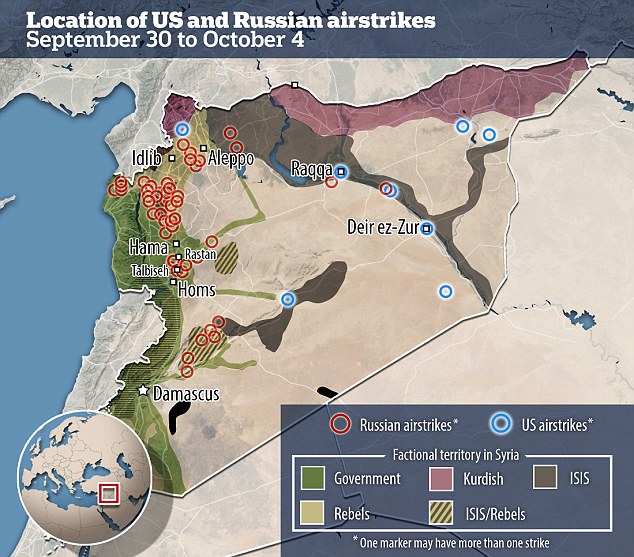The Nov 13 terrorist attacks on Paris, France, testified to the rapid expansion of the international terrorist threat as represented by ISIS. International terrorism has become the biggest threat to international security and the biggest challenge to human civilization. In this situation, the US must undertake its responsibility as a superpower and seriously reflect over and lead the future war against international terrorism.

International terrorism as represented by ISIS has risen and developed, presenting an unprecedentedly complex and severe security threat to the whole world. It is a reign of terror that truly threatens Western values and civilization. The US should keep a sober mind in this regard. ISIS, the regime of terror, has been in Iraq and Syria for nearly two years. It has not only a whole set of nation-building theories and Sharia law but has also practiced its governance on an expanding area of land, thus becoming a “holy land” for extremists and terrorists from around the world. Organizations that claim affiliation or allegiance to ISIS emerge in large numbers. The snowball of extremist ideology has thus gathered more frantic supporters, and terrorism thus enjoys an expanded base and poses a bigger threat. The homeland security defense lines developed by the US and Europe after 9/11 have been permeated repeatedly and are no longer adaptive enough to deal with the composite of Al-Qaeda and the Taliban and its variations
Any attempt of avoidance, delay or appeasement will only help international terrorism develop from threat into reality. Should ISIS or other terror organizations acquire any weapon of mass destruction, be it nuclear, biological or chemical, more severe disasters would follow. Nuclear, biological or chemical terrorism has always been the biggest concern of the US in its counter terrorism effort. Al-Qaeda used to seek nuclear weapons and radioactive materials. Now ISIS has recruited expertise in Iraq and Syria, used mustard gas and other chemical weapons on battlefields and attempted to get radiological substances through international nuclear smuggling. The threat of nuclear, biological or chemical terrorism is unprecedented and severe. The US should fully realize the severity of such a threat and strengthen cooperation with other powers and relevant international organizations so as to jointly prevent the worst scenario.
The terrorist threat is not restricted in the Middle East or only from the ISIS. There are now more frequent cross-regional contacts and flows between terrorist organizations, which necessitates a coordinated response by the international community. The current coalition against ISIS led by the US has failed to unify a counterforce: Participating countries from the Middle East have varying appeals and European states also have major differences with the US. And Russia has started all over again with a new counter-terrorism coalition. It is time for the US to show leadership again by truly rallying different countries without preconceived ideas towards consensus and a lasting war against international terrorist and extremist forces.
The Paris tragedy spoke volumes. It is not emerging powers that pose the biggest threat to the US and the West. Rather, it is the rapidly expanding new international terrorist forces. The international community has to forge a counter-terrorism consensus as soon as possible. It must fundamentally eradicate soils for terrorism, take concentrated actions against the most dangerous terrorist forces, give up selfish intentions and double standards and gain a moral high ground against terrorism so as to break out of this round of terror crisis. The US may consider leading a new anti-terror front by taking following actions.
First, it should continue placing counter-terrorism high on its national security agenda and keeping its strategic focus, provide leadership in strengthening major-power coordination and giving full play to the role of the UN Security Council and expanding as widely as possible the united front against terrorism with international consensus.
Second, counter terrorism should be combined with counter-extremism and Global Counterterrorism Forum and other mechanisms should be used to consolidate assistance for Afghanistan, Iraq and other priority countries in counter-terrorism and to coordinate and lead the international community in the elimination of extremism. In particular, the US should give full play to its technical advantage on the Internet and crack down on the on-line dissemination of extreme thought.
Third, the US may first target the transnational flow of terrorists and extremists by coordinating and establishing an international mechanism to prevent and block such flows. Meanwhile, homeland security defenses of all countries should be strengthened. No country should appease terrorist organizations, tacitly allow terrorist outflow or accuse other countries’ repatriation effort against double standards.
Fourth, the US should also lead an international economic development process and coordinate development strategies with China and Europe to strengthen economic cooperation and trade with as well as assistance to the Islamic world, and help address refugees and other humanitarian crises, thereby fundamentally reducing the breeding soil for terrorism and extremism.


